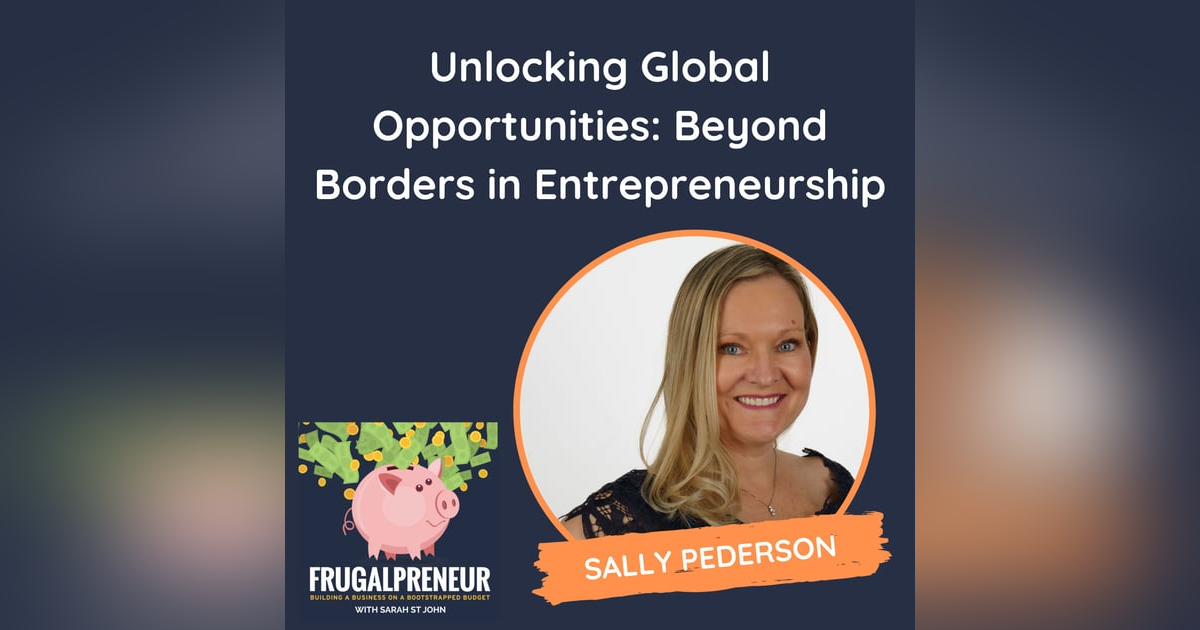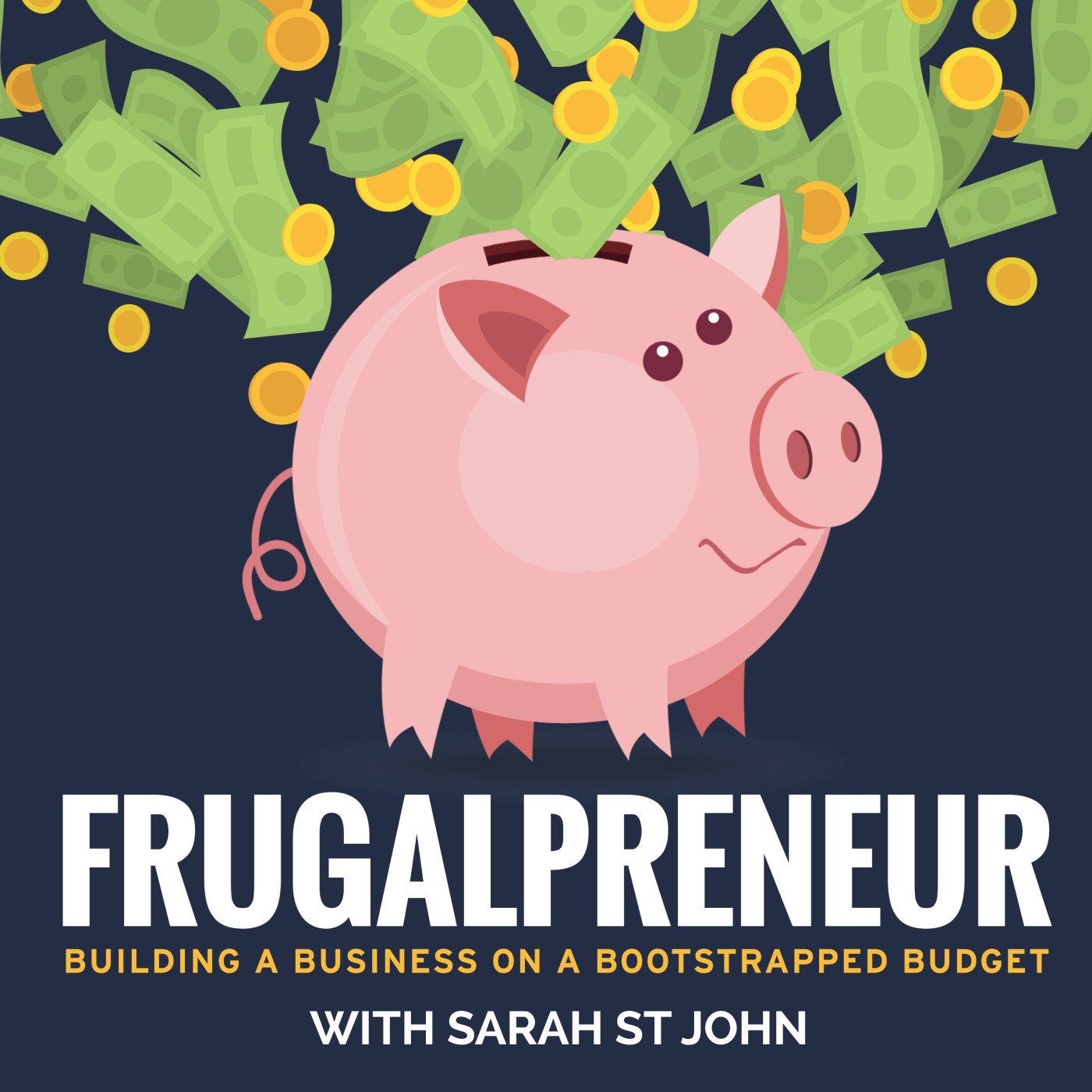Unlocking Global Opportunities: Beyond Borders in Entrepreneurship (with Sally Pederson)

This episode presents a compelling showcase of a bootstrapped entrepreneur (Sally Pederson) who elucidates the transformative journey of establishing a business amidst unprecedented societal challenges. Sally recounts how the pandemic catalyzed a pivotal realization regarding the necessity for individuals to explore their options beyond the confines of governmental constraints. In sharing personal anecdotes, she emphasizes the importance of maintaining low overhead and leveraging existing resources while navigating the complexities of entrepreneurship. Furthermore, the discussion underscores the significance of resilience in the face of perceived failures, portraying them instead as invaluable learning experiences. Ultimately, the episode aims to equip listeners with actionable insights that can be readily integrated into their own entrepreneurial endeavors.
Sally reflects on their extensive background as a business owner, noting a significant shift in perspective during the pandemic, exemplified by the government’s restrictive measures and their impact on individual freedoms. This experience fostered a deep understanding of the need for individuals to seek information that empowers them to make informed decisions regarding their financial futures. The discussion emphasizes the importance of diversifying assets and considering opportunities beyond the confines of one’s home country. The guest’s insights into low overhead strategies, effective use of technology, and the value of writing as a means of disseminating knowledge provide a rich tapestry of practical advice for listeners embarking on their entrepreneurial journeys.
Additionally, the episode tackles the often-overlooked topic of failure in entrepreneurship. Sally shares her experiences with organizing a summit, which, despite financial success, did not yield the anticipated audience engagement. This nuanced reflection underscores the complexities of measuring success in business and illustrates the learning process inherent in every entrepreneurial endeavor. The conversation culminates in a powerful reminder that while the path to entrepreneurship is fraught with challenges, it is also replete with opportunities for growth and learning. The episode leaves listeners with a sense of empowerment, encouraging them to explore the diverse avenues available for achieving their entrepreneurial aspirations.
Takeaways:
- The podcast episode emphasizes the importance of diversifying one's business operations beyond the confines of a single country, particularly in light of governmental actions during crises.
- Listeners are encouraged to explore various income-generating strategies, including writing and conducting workshops, to enhance their entrepreneurial ventures.
- A significant theme presented is the necessity of maintaining low overhead costs while leveraging existing resources to bootstrap a successful business effectively.
- Sally shares a personal narrative of transitioning from a consulting role to a more diversified entrepreneurial approach amidst the challenges posed by the pandemic.
- The podcast highlights the critical notion that failure is not an endpoint but rather an integral part of the learning process essential for growth in business.
- In conclusion, the episode advocates for a long-term vision in business, urging entrepreneurs to remain focused on their goals while avoiding distractions that could derail their progress.
Links referenced in this episode:
00:00 - Untitled
01:42 - Untitled
02:05 - Showcase Episodes and Their Value
02:40 - The Impact of Government Actions on Business
05:28 - Reflections on Failure and Success
08:17 - Rethinking Business Models
09:36 - The Importance of Focus in Business
Sarah St John
Welcome to the Frugalpreneur podcast. I am your host, Sarah St. John.This episode is what I refer to as a showcase episode where I feature a bootstrapped entrepreneur and they briefly share their tips, tricks, tactics, techniques and tools that help them bootstrap their business and the successes and failures along the way.My hope is that each of these showcase episodes will provide at least one valuable takeaway that you can implement with right away in your own bootstrap business journey. Now onto the episode.
Sally Pederson
I've always been a business owner for almost my entire working career, working life. But what really changed things for me with my current business was I would help people along the way before I made it a business.Because it's the life that I live. It's all the things that I've been doing for getting close to two decades now.But the pivotal point when it became a business was during the pandemic when I saw the things that the government was doing. More specifically when Canada had threatened to not issue passports or not renew passports to people who did not get vaccinated.And then when the trucker protest happened in Canada and the Canadian government froze bank accounts of people who were protesting and froze bank accounts of people who contributed or helped and supported the protesters was absolutely appalling. As a country, we are allowed to protest. It's our right.And I just thought if this is how bad the governments are getting, and the tyranny of Canada acting as a communist country was absurd and ridiculous. And that's when I realized people really need to know about options they have available.I used to think when I lived in Canada that I'm Canadian, my company has to be in Canada, all of my bank accounts have to be in Canada, everything I have has to be in Canada. But that's not true.And once governments around the world really started to show their true colors through the pandemic, that's when I realized people need this information so they can make the best decision for themselves and never be stuck under the control of any one single government anywhere in the world. As I started as a consulting firm, I didn't have a lot of overhead, which was great.A lot of the things that I used were everyday things that I was already using with the Internet and a few things. So there was only a couple of additional softwares that I've picked up along the way. So I've kept my overhead very low.But I've also been a writer for a while. So what I write about, I've written in various magazines and publications, and I'VE also written a few books as well.I have a couple that are available on Amazon. My most recent is called A Passport to Freedom, a comprehensive guide to acquiring additional citizenships, and another book called Tax Free Living.The writing and giving people information has also helped along with doing smaller programs and workshops. A summit as well. So there's a lot of ways, apart from having clients that have helped the business survive. I don't believe in failure.I think everything is a learning experience. Sometimes we learn why things didn't work out or why they just didn't work out the way that we wanted them to.I think for me, in a way it was the same thing. It was my very first summit. Financially it was a success. I did very well. I was really happy with it.But the number of attendees, it was a failure, in my opinion.There wasn't as many who showed up for the summit itself, which was disappointing for me because I really want to get the message out to let people know that there are options out there. But I've also learned with that though, that sometimes it's timing, timing of the day, timing of the week. People have intentions of coming up.Other things happen that they have to deal with and that's why people have multiple summits and do things differently. Maybe some more advertising for it. Registration number was really good, but it was the actual Live On Time summit. It was a virtual one.So I would have to say yeah, it was definitely attendance wise to me. Felt like a failure because the numbers weren't there that I wished that were there.But on the flip side of it, the numbers wise financially that I made from it was very good. So it was a little bit bittersweet. It was both, but definitely a big learning experience. And I will be doing more summits again.You can get paid to write articles for various publications, online magazines, those types of things are available where you can still be giving out information.You're promoting your business and you're getting paid to do that at the same time writing a book, potentially, if it works for you, obviously that it does take time to do. Self publishing is a lot faster than traditional publishing as well, so that could be an option.Or just having small, inexpensive but very informative things that you can sell or have people get so they can have wins, whether it's a workshop and you charge a small amount for the workshop, but making sure that people have valuable information where they're going to come back and they want to work with you or buy your programs or have you do whatever service that you're Offering. There's many ways people really just kind of have to look at what they offer people. And having good reviews is also another one. Testimonials.Just what's. There's so much information on the Internet, a lot of it's not true. So just because it's on the Internet doesn't mean that it's true.And so we just need to make sure that you're a person and they want to work with you. It comes back to that. They like know and trust you and that's definitely going to help.I think people really need to think about what they're doing and why they're doing it. Do you want to have a long term business or are you looking to just make some quick money to pay the bills? And sometimes it is a little bit of both.I mean, obviously we need to make money to pay our bills, but having a business is a long term. It's work. It's not that easy. The book came out the Four Hour Work Week. When we truly look at business owners, they don't work a four hour work week.There might be a few that do, but they've been in business for a very long time and they put in a lot of hours. You don't just start a business thinking it's going to be successful and work four hours a week. That's like finding a needle in a haystack.I don't want to say it's impossible because maybe there's one or two people in the entire world of 7 billion who have done it, but it's not normal. You have to put in a lot of work. So it needs to be something that you are somewhat passionate about. You need to keep your eye on the goal.What is it that you're really trying to do? Because the shiny object syndrome kills a lot of businesses. They get distracted.They try this, they try that, they do this, they do that, they change this. And they're all distractions, taking away from what a person really wants to do.And so for me, I just like to guide people to know that there's so many options out there. You're not stuck in one country. You shouldn't keep all of your eggs in one basket.So for more information about what we do is on the website globalcitizenlife.org O R G and we have all kinds of events and workshops and summits and information that people can really learn about diversifying to reduce their taxes to zero or single digits, protect their assets, get citizenships and residency in different countries around the world. And just truly live a life that they desire.
Sarah St John
I hope you enjoyed that episode and were able to take away a valuable nugget of information that you can implement right away in your own business. If you feel your story would be valuable for the listeners of this show, please visit Frugal show guests.








